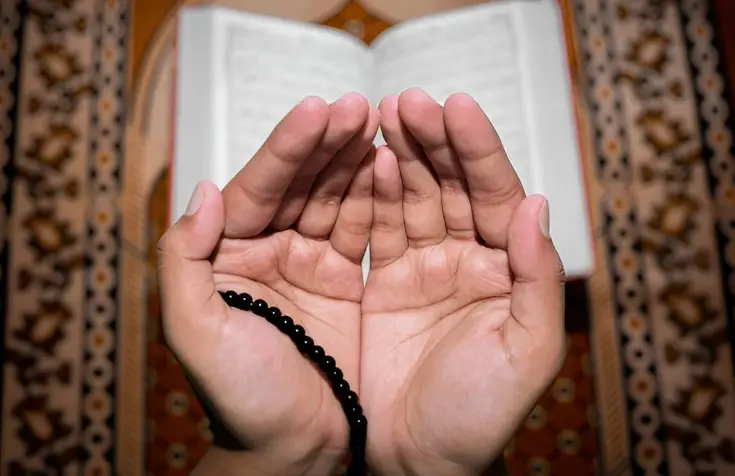
In Islam, Dua is more than just a prayer; it’s a profound conversation with Allah, a moment of vulnerability, and a powerful tool for seeking guidance, protection, and healing.
The concept of Dua for health is deeply rooted in the belief that Allah is the ultimate healer, and through sincere supplication, one can find solace and recovery.
This article delves into the significance of Dua for health, exploring its spiritual, psychological, and even scientific dimensions.
Whether you’re seeking relief from an illness, strength during a challenging time, or simply a way to maintain your well-being, this guide will provide you with the essential Duas, practical tips, and insights to incorporate this powerful practice into your daily life.
By the end of this article, you’ll have a deeper understanding of how Dua can be a source of healing and a means to strengthen your faith.
Key Duas for Health
Dua for General Health and Well-being
One of the most commonly recited Duas for general health is:
“Allahumma ‘afini fi badanī, wa ‘afini fi sam’ī, wa ‘afini fi basarī, la ilaha illa anta.”
This translates to: “O Allah, grant health to my body, health to my hearing, and health to my sight. There is no deity except You.”
Dua for Healing from Illness
For those suffering from a specific illness, the following Dua is often recommended:
“As’alu Allah al-‘azīm rabb al-‘arsh al-‘azīm an yashfiyak.”
This means: “I ask Allah, the Mighty, the Lord of the Mighty Throne, to heal you.”
Dua for Strength and Patience During Sickness
When facing a prolonged illness, it’s important to seek strength and patience. The Dua:
“Allahumma la sahla illa ma ja’altahu sahla, wa anta taj’alu al-hazna idha shi’ta sahla.”
Which means: “O Allah, there is no ease except in what You have made easy, and You make the difficulty, if You wish, easy.”
Dua for Protection from Diseases
In times of widespread illness, such as during a pandemic, the following Dua can be recited for protection:
“Allahumma inni a’udhu bika min al-barasi wal-jununi wal-judhami, wa min sayyi’il-asqam.”
This translates to: “O Allah, I seek refuge in You from leprosy, madness, and paralysis, and from evil diseases.”
How to Make Dua for Health
The Best Times to Make Dua
Certain times are considered more auspicious for making Dua, such as during the last third of the night, between the Adhan and Iqamah, and while prostrating in Salah. Making Dua during these times increases the likelihood of it being accepted.
The Etiquette of Making Dua
The etiquette of making Dua includes facing the Qiblah, raising your hands, and beginning with praising Allah and sending blessings upon the Prophet Muhammad (PBUH). It’s also important to be sincere, humble, and persistent in your supplications.
Combining Dua with Medical Treatment
While Dua is a powerful tool, it’s important to remember that it should be combined with seeking medical treatment. Islam encourages the use of both spiritual and physical means to achieve healing.
The Prophet Muhammad (PBUH) said, “Make use of medical treatment, for Allah has not made a disease without appointing a remedy for it.”
Conclusion
In conclusion, Dua for health is a powerful practice that can bring about both spiritual and physical healing.
By incorporating Dua into your daily routine, you can strengthen your connection with Allah, find peace in times of distress, and seek His guidance and protection.
Remember that Dua is not just a request for healing but also a means of building trust in Allah’s plan.
Whether you’re facing a specific illness or simply seeking to maintain your well-being, Dua can be a source of comfort and strength.
Make Dua a regular part of your life, and trust that Allah’s wisdom is always at work.
FAQs
H3: Can Dua cure any illness?
While Dua is powerful, it should be combined with medical treatment. Allah has provided remedies for illnesses, and it’s important to seek both spiritual and physical means of healing.
H3: How often should I make Dua for health?
There’s no set frequency for making Dua, but consistency is key. Make Dua regularly, especially during times of need.
H3: Are there specific Duas for specific illnesses?
Yes, there are specific Duas for different types of illnesses, but general Duas for health can also be recited.
H3: Can I make Dua for someone else’s health?
Absolutely. Making Dua for others is highly encouraged in Islam.
H3: What should I do if my Dua isn’t answered immediately?
Trust that Allah’s timing is perfect. Sometimes the answer to our Dua may come in ways we don’t expect or at a later time.



